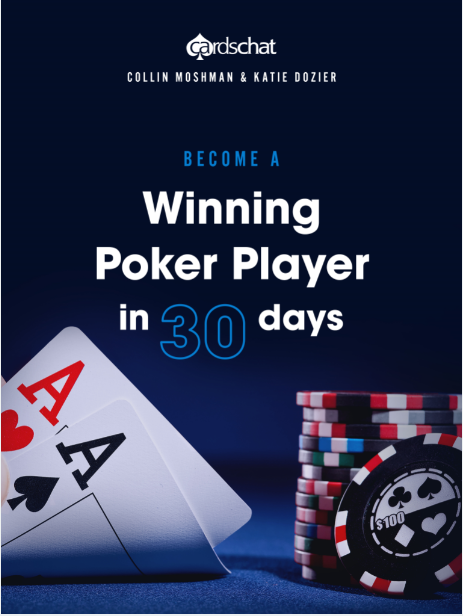Debi
Forum Admin
Administrator
You will play every hand pre-flop and in this Guide to Pre-Flop on Day 6 you will learn how important position is in determining your action.
If you have not yet read Day 6 and watched the video for Day 6 - take a few minutes now to do that and then come back here to discuss it:
The Guide to Pre-Flop
Katie reviews all of the factors you need to consider when playing pre-flop and when you should take more risks. She even explains how to read ranges. I found this chapter to be a great refresher and reminder to myself about making good decisions pre-flop. I won my league game after reviewing Day 6.
Remembering to calculate the effective stack was a concept I learned from Katie 10 years ago when I first started playing live poker.
Feel free to ask Katie and Collin any questions you have about pre-flop play - and engage in discussion with other players right here in this thread.


If you have not yet read Day 6 and watched the video for Day 6 - take a few minutes now to do that and then come back here to discuss it:
The Guide to Pre-Flop
Katie reviews all of the factors you need to consider when playing pre-flop and when you should take more risks. She even explains how to read ranges. I found this chapter to be a great refresher and reminder to myself about making good decisions pre-flop. I won my league game after reviewing Day 6.
Remembering to calculate the effective stack was a concept I learned from Katie 10 years ago when I first started playing live poker.
Feel free to ask Katie and Collin any questions you have about pre-flop play - and engage in discussion with other players right here in this thread.


Last edited:















